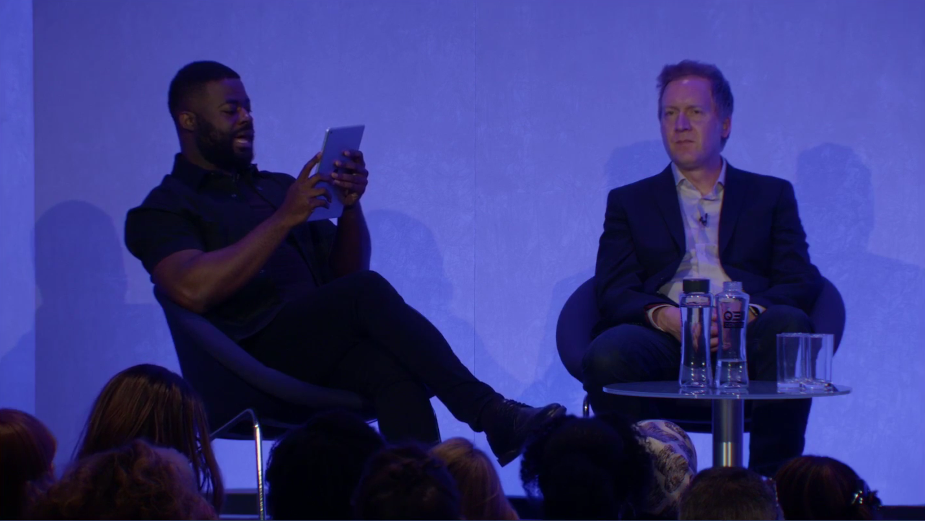
The 2023 All In Summit: A Space for Difficult Conversations

Yesterday, the Advertising Association held its second All In Summit in London. Coinciding with the release of the results from UK advertising’s second industry-wide survey, the All In Census, the day featured reflections from across the industry on what the results mean for building inclusivity, and plenty of insights and strategies on how marketing and advertising must progress on that front.
The All In Census was created by the Advertising Association, the IPA, ISBA, and Kantar to build a more inclusive workplace and better support the industry’s talent. Almost 19,000 practitioners from across the advertising and marketing industry took part, spanning agencies, media owners, tech companies and brand marketing teams. It is the largest response yet for the initiative (equating to an investment of £300,000 of the industry’s time and exceeding the 16,000 participating in 2021), making it the largest survey of its kind undertaken by any UK industry. The analysis, presented by Kantar and supported by UK advertising think tank, Credos, shows some progress has been made, with respondents indicating a sense of belonging up two percentage points (ppts) to 71%, and a presence of negative behaviour down one ppt to 15%, with an All In Inclusion Index score of 69%, up two ppts since 2021. You can dig into the results here.
The day was hosted by Ben Hunte, global LGBTQ correspondent for VICE World News, who began by sharing personal stories of his experiences as a Black, gay man, underlining the human impact that corporate efforts on diversity, equity and inclusion can make.
To introduce the summit, Kathryn Jacob, chair of the Advertising Association’s inclusion working group and CEO of Pearl & Dean, took to the stage to underline the scale and importance of the All In Census. She looked back to the first All In Summit in 2021 and the action that the results have provoked across the UK advertising and marketing industry. She thanked everybody who’s been involved in driving change alongside the commitment to action the AA has made.
Political Keynote
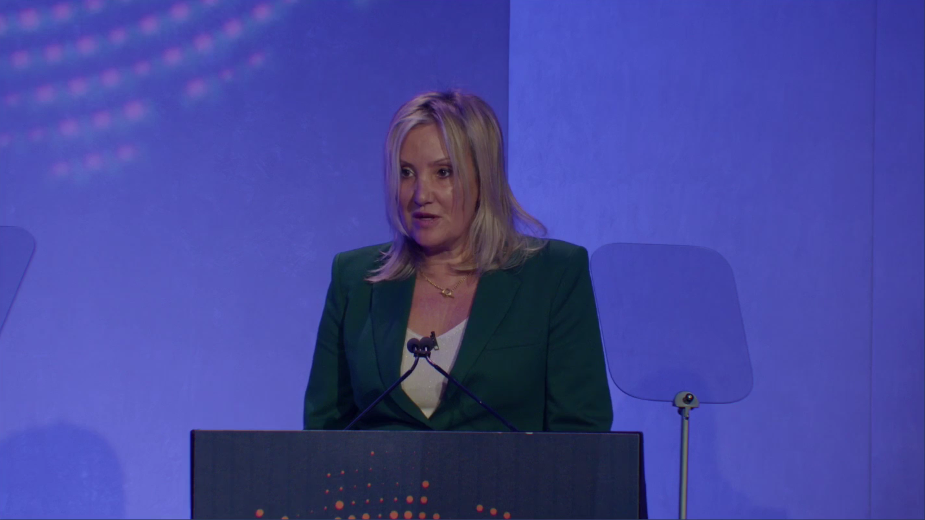
One of the hallmarks of an Advertising Association event is the participation from someone in the UK government, and at the All In Summit 2023 that role was filled by Dame Caroline Dinenage MP. Beginning by asserting her credentials as someone who came from a career in business before beginning in politics, she went on to congratulate the marketing and advertising sector of the UK. Dame Caroline made a particular point of congratulating the business leaders in the room on the industry’s resilience through and after the covid-19 pandemic. “You guys are so influential, and it's so inspiring to see the way that you've risen to the challenges that the last few years have thrown at you and continue to bounce back,” she said.
On the subject of All In and its efforts to change the industry, Dame Caroline called the All In action plan “Exhibit A in that philosophy. It is truly revolutionary to see countless companies sign up to the nine-stage plan. And to see how seriously the diversity, equity and inclusion agenda is now being taken. As you've heard already. It's not about words, it's about action.”
In the first of many references to ‘Mad Men’ being people’s main point of reference for what the ad industry looks like, she joked that we need a new TV show, “maybe called ‘mental health aware group of people, representative of gender, ethnicity, disability, sexual orientation, religion and social mobility’. OK, it's a working title.”
“I have a hunch that it's going to result in a much happier and more productive workforce and advertising that speaks to so many, many more people,” she said.
Dame Carolinewent on to make the argument for why more representative advertising makes business sense - drilling down into the details of the action she’s seen in as a result of All In’s agenda.
“For me this absolutely speaks to the heart of the UK,” she concluded. “We are such a culturally rich nation which is on an upward trajectory to become even more diverse and fabulous. We need to take action to hold ourselves accountable, to lock in and build on the progress that we're making and all of you today have the real opportunity to be part of that change and to make a real difference.”
Review of the All In Census Results
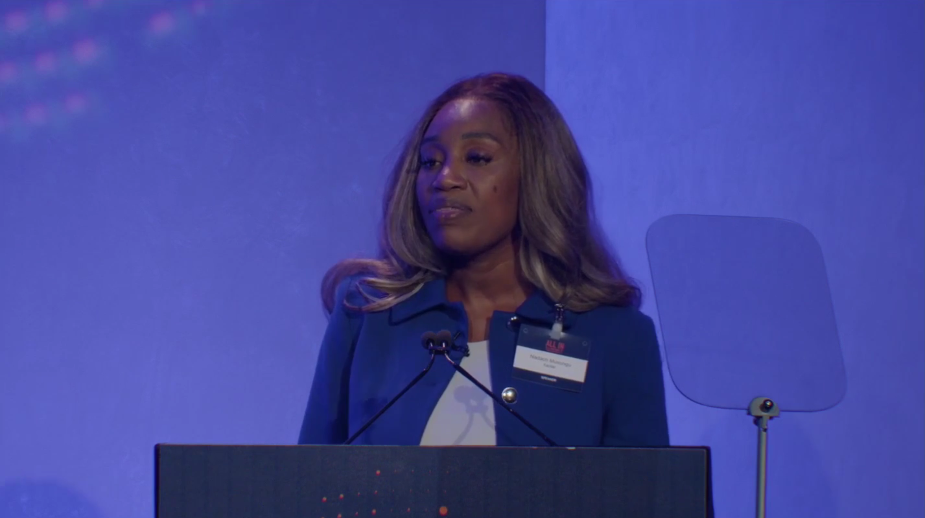
Nadach Musungu, diversity and inclusion lead at Kantar filled an important slot in the day, sharing some of the most revealing insights from the results of the All In Census, many of which can be explored on the All In Hub.
Insights included the pronounced age disparity between men and women within the business, with younger women outnumbering younger men, yet older men outnumbering older women – a trend that Nadach suggested seems to be influenced by women leaving the workforce for better work-life balance or due to care responsibilities.
There were also insights on other effects of sexism in the industry, from the gender pay gap to sense of belonging to sexual harassment, which, although it looks to have reduced since 2021, is still a problem.
Although representation of ethnicity appears to have improved to be in line with the UK population, it was revealing to note that the advertising industry’s London bias means it is still underrepresenting ethnic minorities compared to the make-up of the industry’s main hub city. And, when more senior roles are focused on, these shortcomings are greater.
Nadach also highlighted the unacceptable prevalence of discrimination that Black and Asian people reported in the census.
On disability, the industry’s workforce is also underrepresented, although many of the insights from the census showed a positive direction of travel on accessibility and attitudes towards people with disabilities.
This being the UK, class was an important discussion point. The census revealed that working class people are underrepresented, while those who attended fee-paying schools are found in more roles in advertising than in the general population.
Lesbian, gay and bisexual people appear to be represented more in the advertising and marketing sphere (11% compared to 3% in the UK population), but with 27% of LGB+ respondents likely to leave their
company in the next 12 months, there is clearly work to be done on inclusion.
On age, there were more sobering results – a memorable one being that those over 55 are more than twice as likely than the industry average to feel they have been subject to discrimination.
“There are so many positives to take from the 2023 data,” Nadach concluded. “There's areas of improvement highlighted, and there's change happening in real time. However, there is still so much work to be done. As in 2021, these results will directly shape the evolving industry action plan. There's plenty for us to digest and reflect upon here and that's just the start. Analysis will continue over the coming weeks and months to ensure that every story in this data is revealed.” For more of that, she advised the audience to visit the All In Hub.
The Industry Responds
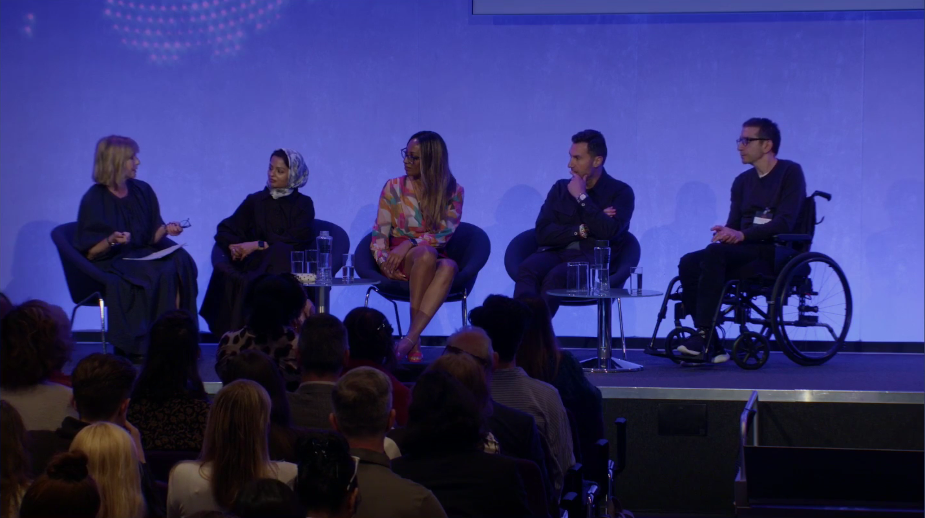
A panel of industry leaders discussed what the All In Census results provoked for them by way of an industry response. Sufia Hussain, inclusion, equity and diversity director, EMEA at Wunderman Thompson reflected on some of the positive general headlines from the census - there was progress on many fronts over the past two years, but reminded the audience of an important thought: “Do our post rooms look like our board rooms?” She noted that while general figures improve on various metrics, certain levels or departments are becoming more diverse at a greater rate. And we all anecdotally know where that change is and isn’t happening.
She noted that working on All In’s action plan and making change in her industry has been an “incredible experience,” but the key is asking “how do we keep that progress in the right direction and keep improving?”
Some of the barriers to true inclusion are less tangible than simple figures, said Sufie. “Not everyone has access to being fully themselves in the workplace. Psychological safety is having access to that and for example not having to code switch at work. Those are considerations for people at all levels of the industry.”
Maria McDowell, founder of lollipop Mentoring, responded to the census’ findings that Black respondents are the most likely to be discriminated against and consider leaving the industry. Drawing on her experience mentoring many people in the industry, she said that she can see that playing out. “Black people are taking careers into their own hands because they don’t have that trust,” she said. “People are prioritising their mental health. They’re not putting up with it.” She noted that employers need to tackle the root of this and that there is a “huge job to be done in building trust.”
Matt Bush, managing director of agencies, partners and creative at Google recognised the class structures that make it difficult for working class people to break through in advertising and marketing. He noted that there’s been a lot of pushback on the way we measure social mobility or class, because it’s more nuanced in many ways than other characteristics. “We don’t measure social mobility in the same way,” he said, and suggested that every organisation needs to start setting targets, alongside those they usually already have on other aspects of inclusion. With a talent crisis raging, it seems obvious, suggested Matt, that more outreach is needed to the non-fee paying 93% of the population. “Are we doing enough to really reach areas that have perhaps been left behind?”
On disability representation, Danny Josephs, partner at MFUSE responded to the positive insight from the census with the caveat that although fewer people with disabilities are less likely to leave the industry, they’re more likely to suffer stress. That’s something that should be a focus, but he also noted that “more than about attitudes, it’s about investment.” For so many with disabilities, the working environment itself needs to change, not just how people act within a business.
Advertising Advertising
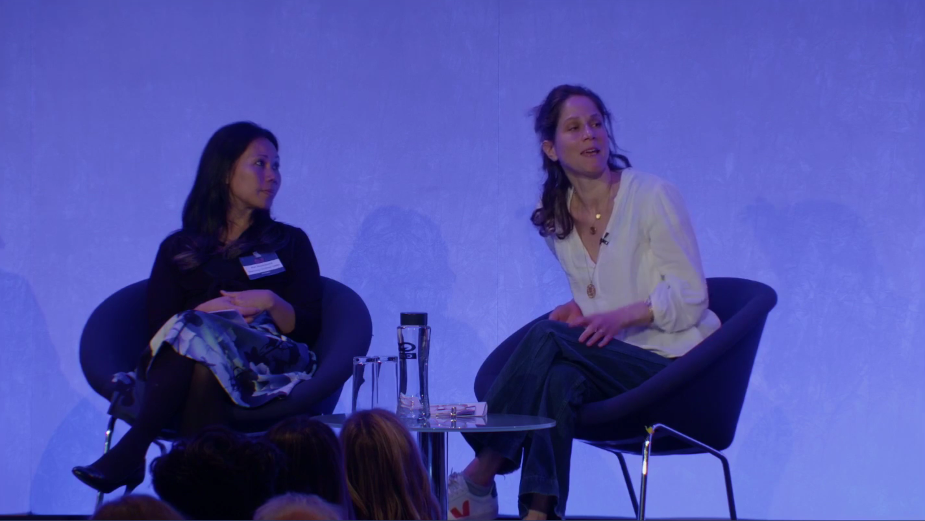
‘Advertising Advertising’ was the title of the next panel discussion, keying into the conversation that the Advertising Association began at the start of 2023 with the launch of its talent agenda for the UK ad industry. If the industry is going to survive and thrive – and further its action on DE&I – it needs to position itself as a career people of all backgrounds find attractive, the panel agreed.
adam&eveDDB CEO Tammy Einav, expressed her gratitude for finding this industry, given the unique chance it provides to do something you’re actually passionate about as a job. That “marriage between the passion, the creativity and the results which that drives,” is something that she’d love to see celebrated more. And for that, great ambassadors in the industry are needed -acting as aspirational figures. She also highlighted the need to create a buzz around advertising as a career, not just as a single discipline, but specifically while targeting different types of people with skills to match to the different talent needed. That’s something that Pete Markey, chief marketing officer of Boots UK, agreed with, stressing the need to create all sorts of stories about the different futures people could have in marketing and advertising.
‘Mad Men’ came up again on this panel, who all agreed that what the show represents is a long way from what advertising is today. Sadly Tammy acknowledged that she “can’t think of another one that creates a narrative around our industry.”
Kat Bozicevich, managing director of MG OMD voiced the need to expand who the industry is looking for when advertising itself as a career destination, stating that more experienced hires are required as much as young blood. She also stressed the diversity of roles that are possible careers. Beyond creatives, the advertising industry needs to let the public know that it needs analysts, collaborators, coders, etc.. The UK ad industry must put a “controlled narrative” into the public sphere, she suggested, correcting for the missed opportunity of letting people understand advertising’s proximity to the cultural narrative.
The Value of Talent: Recognising and Retaining your Best Assets
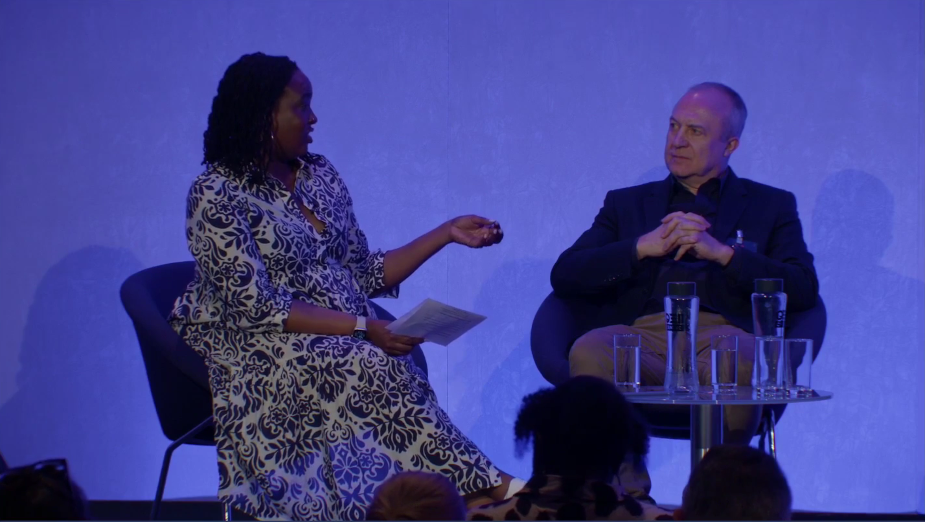
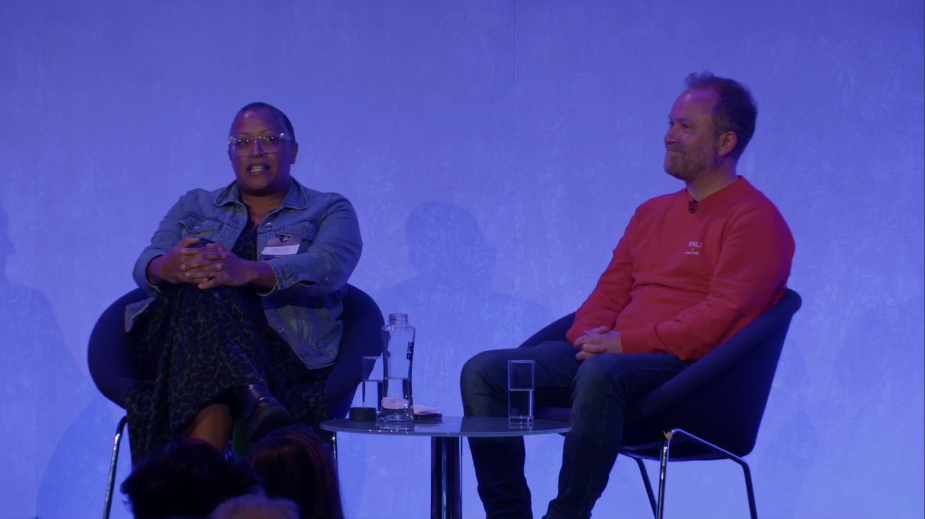
Dinah Williams, founder of The Avenir Network chaired another panel of industry leaders around the real corporate action that’s needed to protect the people in advertising. Neil Henderson, CEO at St Luke’s began by facing up to the reality of the talent market right now. People leaving because they’re not being paid enough isn’t surprising, he said, revealing that he’s seen people offered 20%, 25%, even 50% more to go elsewhere. “People are going for the money,” he continued, adding that keeping people by virtue of “the pull of the culture” has become “much more difficult.” Aside from that, everyone in advertising knows people who’ve left the industry to become something they perceive as more meaningful – yoga instructors, chefs or entrepreneurs abound with advertising backgrounds.
To combat that, Neil outlined the many ways St Luke’s works to make employees feel valued, from building individual career pathways on a one-on-one basis, through to putting budget aside for building skills not directly linked to careers (so they can learn to become a yoga instructor without leaving advertising). He also suggested broader behaviours such as making more space for collaborative meetings where all levels of seniority are listened to, and various policies to help with childcare.
Sarah Jenkins, managing director of Saatchi & Saatchi London said the agency is “experiencing our own churn,” partly due to macro issues such as the hangover from lockdown and the cost-of-living crisis. But she also said that generally as an industry “we’ve got to get better at looking after our talent.” Money should not be sidelined in this conversation, so Sarah stressed the importance of talking openly and getting “forensic” on salaries to earn trust. She’d also love to see the industry apply some of the “smarts, energy and chutzpah” used on clients’ briefs on the industry’s DE&I challenges.
She highlighted Saatchi Home, a scheme that making sure people can move to London and live and build community while on entry-level salaries.
Gen z will take a salary cut to have more purpose at work, pointed out Sarah, so as a result, “there is sacrifice we need to make as leaders to make sure we are staying committed to what we have said.” She also noted that taking action on positive change requires accountability. “Make it public, because people will hold us true to that,” she said. A bonus point: if you’re in a holding company, learn what the other ones are doing, she advised. “Play them off against each other and then everyone rises.”
Jake Dubbins, co-founder and managing director at Media Bounty also spoke about salaries, insisting that living wage should be the basic minimum. Generally, more trust, flexibility and respect are the principles he sees as key for ensuring employees feel valued and comfortable in their careers. Specifically, he spoke about creating space for volunteering to give people permission to do things beyond their core job. And, importantly, expect scrutiny from potential employees. “Recognise that our talent is not going to be keen on working on business that doesn’t align with their values,” he said. When unsure on whether a business decision is ethically in line with employees, check with the team and welcome accountability from employees, he advised.
Look Out
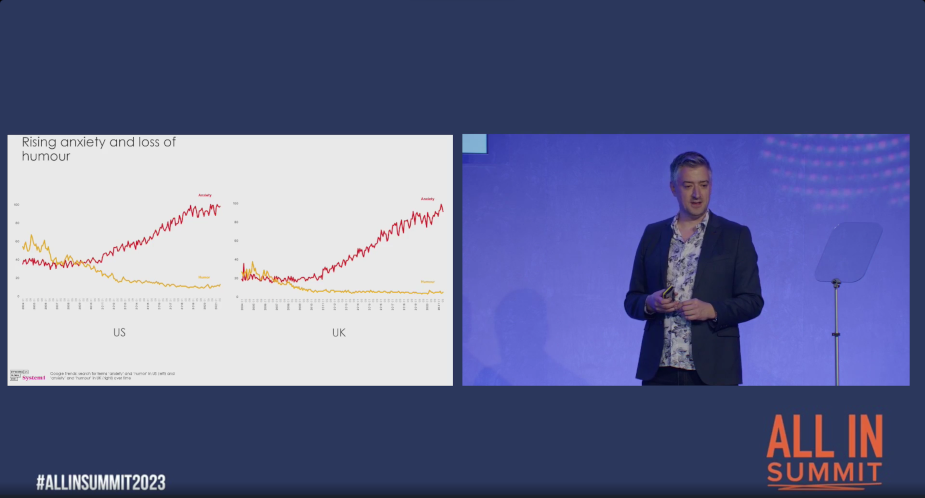
Jon Evans, chief customer officer at System1 gave a presentation on the growing levels of detachment in advertising – a trend that he suggested is resulting in the raised levels of anxiety in the industry. With less humour and fun as part of this industry, he suggested that this could be why people in advertising and marketing are losing more sleep over their jobs and feeling anxious than the “modern mainstream.”
Drawing on some recent System1 research, he detailed some differences between left brain and right brain-led advertising, noting that evidence suggests right brain advertising holds more attention in today’s industry… and that this is a problem.
After a fascinating deep dive into some System1 studies, his takeaways were simple: advertising needs more trust, a focus on life is important, animals are successful because we’re hard wired to notice them and humour is powerful.
“Maybe it's time for us all to look out. And that I think will help us not only make better advertising that delivers better results, but hopefully enable us to address anxiety, depression, and the sense of detachment that a lot of us - if we're honest - are feeling, and I know we're going to be discussing stuff. So thank you so much for your time, if you'd like to get a coffee.”
The Future of the Workplace - Leaders’ Discussion
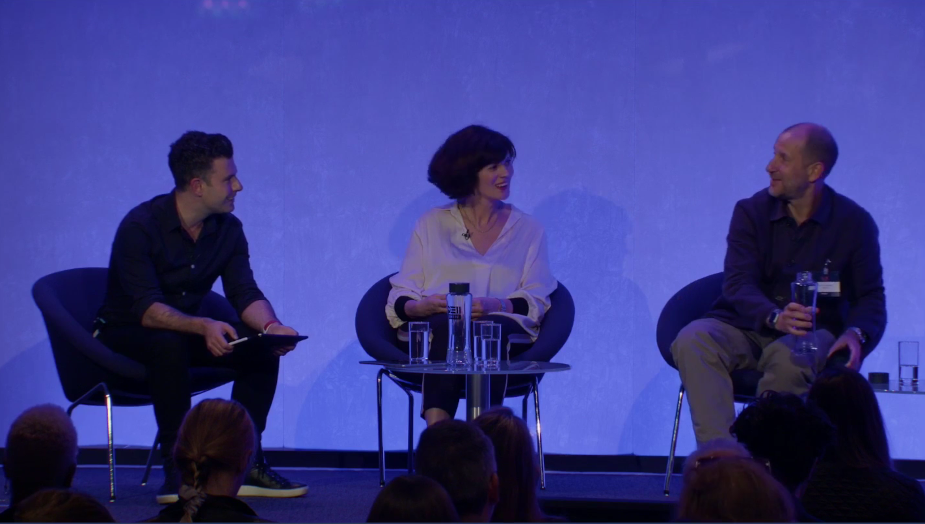
Media leaders next took to the stage to discuss the hybrid working balance that’s right for the post-covid-19 workplace. Veriça Djurdjevic, chief revenue officer for Channel 4 identified the clear balance between flexibility and feeling like part of the team. “I have a good day more often than not,” when she goes in, she said, which is far from a concrete metric, but something many can relate to. Recognising a “great deal of variation” on views, the discussion turned to how difficult it can be to really understand what a job is if you’re not there in person. The ‘osmosis argument’ will get you so far, she noted. But suggested that with leadership strategising about how to use office time more effectively than before hybrid working will get businesses a lot further than just letting it happen naturally.
Josh Krichefski, CEO, EMEA & UK at GroupM also advocated for the greater flexibility of working that most of the business has seen in recent years, suggesting that trust of employees should be a foundation. “If we’re policing things in our organisations we’re in trouble,” he said, asserting that leaders have a responsibility to create cultures that are brilliant for their people. Moreover, he added that while some decisions might not be popular, if the aim is to create a better company culture, trust will be earned. He also stressed that culture doesn’t just come from leadership. “Everyone’s empowered to create the culture that they want to be part of.”
Advancing the Mental Wellness of our Industry
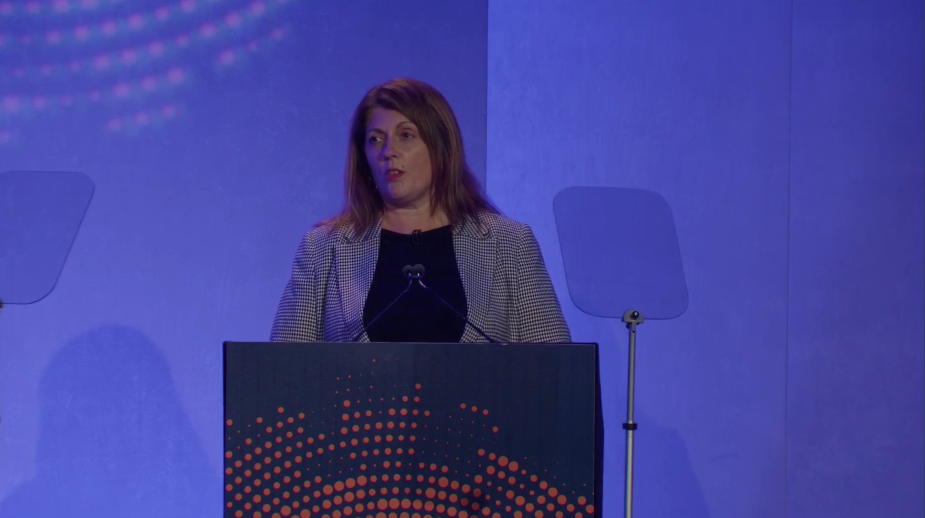
Sue Todd, CEO at NABS opened her presentation on mental wellness personally, sharing her struggles in recent years with mental wellness linked to perimenopause. After finding that she was coping less and less well, she sought help. “I am still nervous about saying publicly that I took some time out of work to get mentally better,” she said. It’s that kind of experience – and the taboo surrounding it – that organisations like NABS are fighting to eradicate.
She noted that almost all support NABS gives has some mental wellness underpinning to it, so understanding the complexities of this area are key to the organisation.
Reflecting the drop in the census on reported incidents on sexual harassment, she recongised the progress, but noted that 2% of people experiencing sexual harassment is “2% too many.” Eradication is the goal, and that’s why timeTo, which is run in collaboration between NABS and the Advertising Association, is still a core focus for the organisation.
Another All In Census insight that Sue dug into was that minority groups over-index on mental health issues, saying it is important to dig into specific issues that feed into that.
Finally, Sue outlined the support that NABS can offer both individuals and companies in their efforts to combat the inequalities the All In Census revealed. Whether through counselling, workshops or more direct forms of professional support, the industry’s wellbeing charity is there to support the mental wellness of the people in it.
The International Roll Out of the All In Census
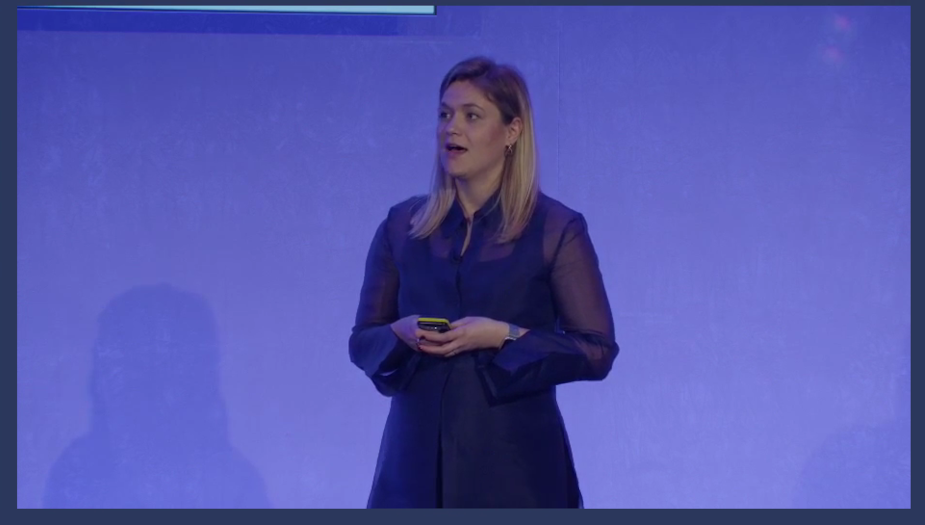
Global head of brand for the World Federation of Advertisers, Camelia Cristache-Podgorean’s role in the summit was to provide a global perspective on DE&I efforts in the industry.
Having seen the lack of measurement on DE&I efforts in 2020, the WFA came to find AA and Kantar’s efforts and took inspiration. Following the first All In Census, Camelia explained that her organisation worked on its own global survey across 27 markets in 2021: The Global DEI Census.
This was complicated, with the “cultural particularities” of those countries making the 10,000+ responses a difficult task to find insights in. However Camelia shared some findings, noting the “different realities from market to market” and that “there’s nothing more local than culture and diversity.” For example, there was a 23% difference in sense of belonging between highest and lowest scoring markets.
On the other hand, some things were universal, such as discrimination being reported around family responsibilities, age and gender the world over.
She noted a huge difference between the willingness to take meaningful action on these issues between countries that prioritise DE&I and those who don’t.
But, like the All In Census, Camelia highlighted the value of a benchmark that we can build on, shining a light on areas to improve and providing data for local action plans.
All In Champions Case Study: ITV
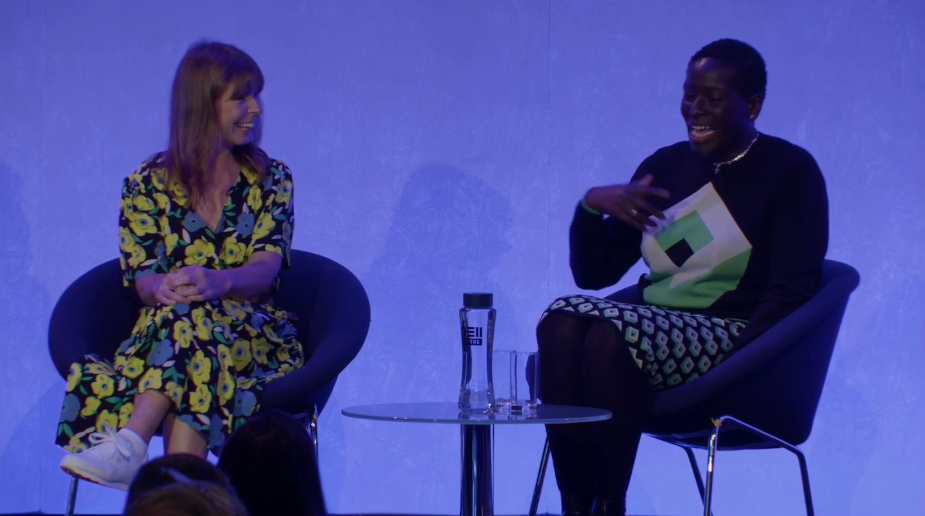
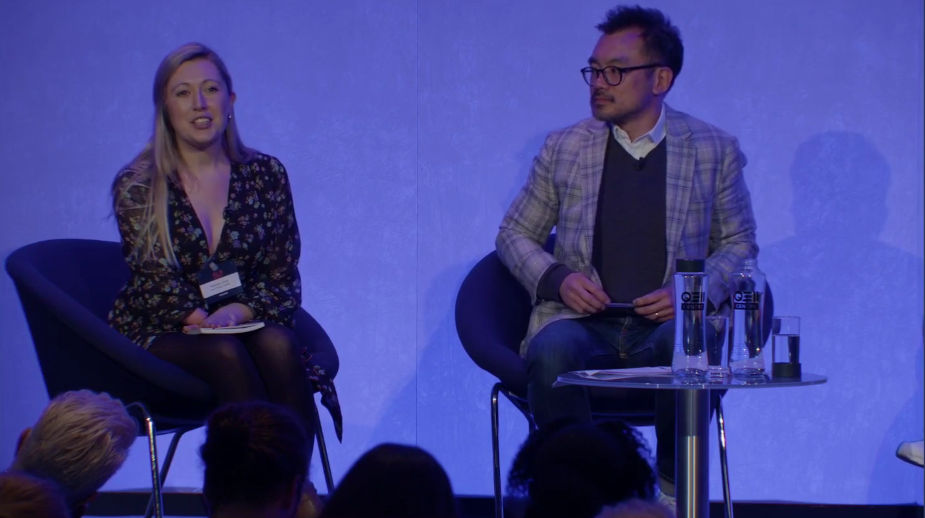
One interesting aspect of the broad All In programme is the status of All In Champions - companies who are implementing demonstrable action to change the DE&I picture for the industry. Broadcaster ITV is one such company and the last panel of the day focused on how across the business, various practices are changing to make the company more diverse, inclusive and equitable.
Melissa Johns, actor and co-founder of TripleC DANC chaired the panel, praising the action-based nature of All In, as well as the need to keep the foot on the accelerator, even when things are moving in the right direction. The subject of quotas and tick boxes came up, which, as someone born without her right arm below the elbow, she has strong views on: “My personal feeling towards that is, I actually don't mind quotas and tick boxes because we are not at a place yet where we're doing it organically. So actually, if our way to get to that is by having to really make sure that we're doing it, that will surely eventually lead to us doing it far more.”
Ade Rawcliffe, group director of diversity and inclusion at ITV decided it was important to admit that “we don’t think we’ve got all the answers,” but that she has found success in trying to embed DE&I in everything they do, building it into processes so it becomes part of the fabric of the organisation, rather than just coming from the champions of those causes. “It ends up being more relevant than you’d think,” she noted, with a lot of technical and creative decisions being enhanced by having a DE&I lens put on them. Ade also threw in a handy argument in favour of on-screen representation: “We all cry at ‘Finding Nemo’, and it’s not because we’re fish.”
The power of community networks is something that Harry Tan also feels strongly about. As SVP, marketing and digital products at ITV Studios, he’s been part of Amplify, which launched in 2022 with the objective to create more opportunities for senior leaders of ethnic minorities, across different departments. “So it's a bit like a glee group for people from minority backgrounds,” he said, adding that mentoring and fellowship is the core of that group.
As a helpful point to end on, Casey Shaw, activation manager and co-chair of ITV Able said: “We shouldn't underestimate the power of better representation in advertising. You want your product to sell, you need to represent the people who you want to buy it. And if they're not seeing themselves on screen, that's not going to reach them. It's not going to make them think, ‘I can see myself in that car because I can literally see myself in that car on screen.”








